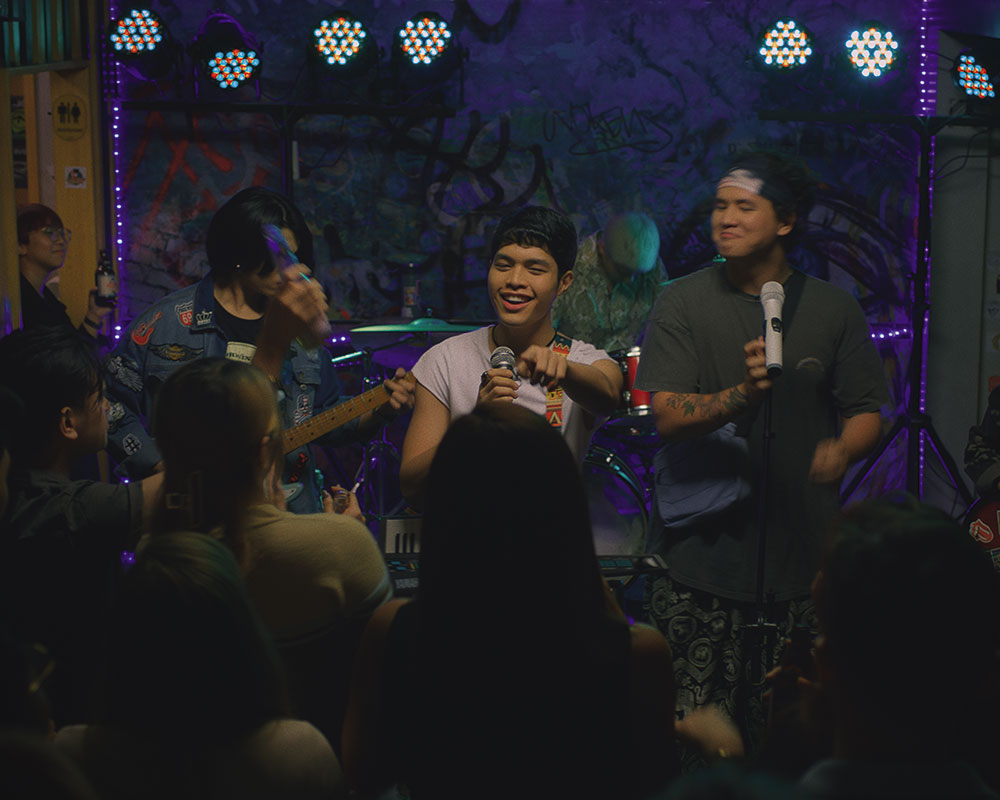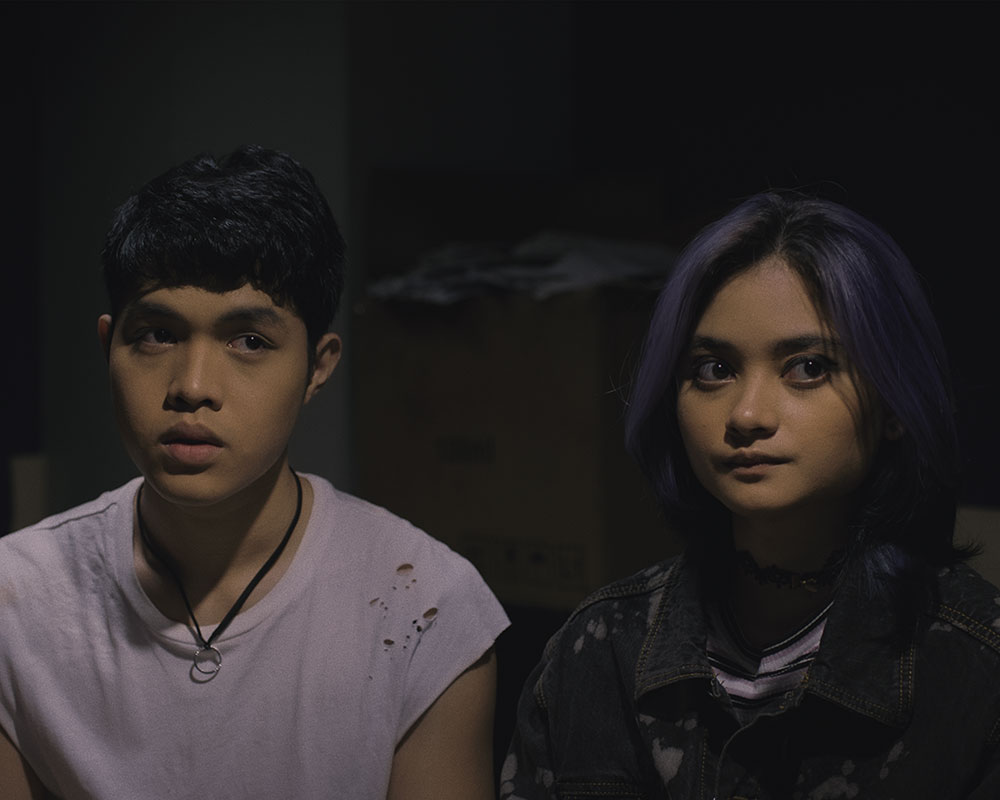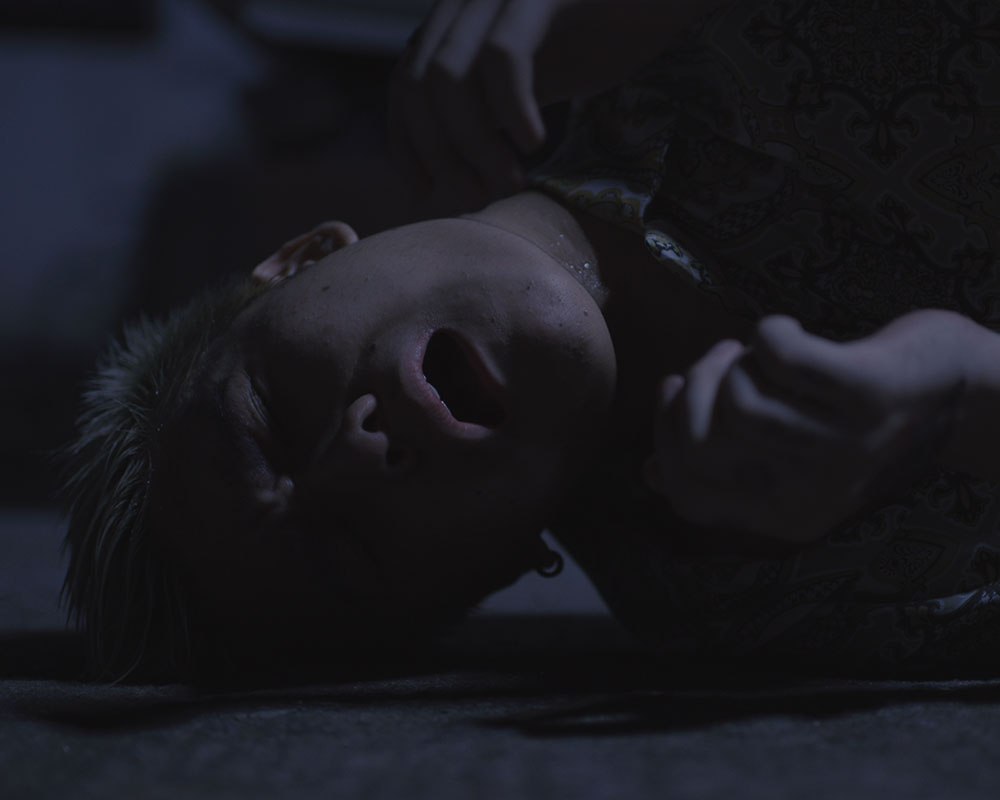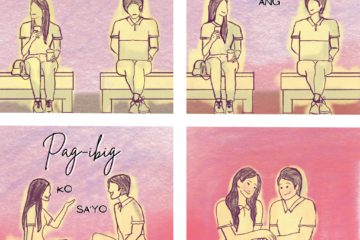VILLAINS, TOO, have a story to tell. Whether or not people choose to sympathize with them, their own narrative is essential to understanding the root of the conflict.
The local film industry is already home to social and political commentaries which expose former President Rodrigo Duterte’s war on drugs and how it propagates the brutality of uniformed men. Respeto (2017), Buy Bust (2018), and Watch List (2019) are a few titles that have gained public interest over the years.
Ma-an Asuncion-Dagnalan’s 18th Cinemalaya entry Blue Room is not new to the category though it still manages to stand out from the rest.
Blue Room resembles the grim reality of how money and power play a key role in tweaking the justice system according to one’s favor. What sets it apart from other films that tackle the same problem is how it tells the story not of the victims but of the perpetrators.

As early as the opening sequence of the film, the scenarios already speak of what it’s bound to be about. The camera pans along a street where kids beg for leftover beverages from strangers, an immediate indication of poverty and class divide.
The film then starts to introduce members of indie rock band “Rebel Rebel,” allowing viewers to get a first look at what kind of people Troy (Elijah Canlas), Chigz (Harvey Bautista), Christian (Leoni Jin), Rocky (Nourijune Hooshmand), and Anton (Juan Karlos Labajo) are.
Following a night of music, booze, and drugs, the band decides to drive by for porridge before heading home even with the group’s voice of reason, Rocky, insisting otherwise.
The suspense of the film is heightened when they are pulled over by policemen Santiago (Bombi Plata) and Toledo (Jericho Arceo) at a checkpoint for alleged multiple violations.
They are led to the so-called ‘blue room’ where Officer Delgado (Soliman Cruz) gives them a chance to bribe their way out of jail time. This is where the dilemma begins: should they accept the consequences of their delinquency or take part in the crooked justice system?

Inside the blue room, power is abused to milk money out of naive kids who seem capable of paying their way out of trouble. Rogue officers like Delgado take advantage of the agitated individuals brought to the blue room by using the law to intimidate and eventually manipulate them into considering bribery as an option.
While the story progresses, those at the other end of the socioeconomic spectrum remain in the background where their purpose is to accentuate the well-off kids. The other prisoners were used merely as a device to emphasize the difference between the privileged and the ordinary people.
The prisoners in the secret cell, for instance, expressed their grievances with a dialogue or two while being briefly shown every once in a while when the protagonists were being led in and out. Complaints about their poor condition in the tiny room and their alleged wrongful imprisonment were also heard as the hidden door was discovered.
It may be debatable whether it is a cinematic strength or weakness that the actual victims were given little to no exposure. Then again, it could be Asuncion-Dagnalan’s way of delivering the message.
A commendable aspect of Blue Room is its attempt to discuss relevant issues outside its central conflict. Misogyny, for instance, was briefly tackled through a heated conversation between opposing characters Rocky and Anton. However, what it lacks is a more effective execution rather than the heavy reliance on mere dialogues to basically spoon-feed viewers into understanding what the scenes signify.
One charm of the film is the chemistry between the actors and the individuality in the characters that they portray. Asuncion-Dagnalan encapsulates the latter better through the use of live streaming clips that strip the protagonists off of everything objectionable about them and unveil their most vulnerable selves—an effort to develop them into human beings that viewers can empathize with.

Blue Room stays true to the chilling aura its title promises. Through its faint cinematography, the dim police station halls would surely creep under the skin of anyone who comes across it while Elijah Canlas haunts them with an acapella number.
The film delivers its message through comical lines, soul-stirring music, and an unsettling feeling of defenselessness as it reveals the reality of how the system works.
In the end, it becomes clear that what the film seeks to address is how privilege needs to be acknowledged in order to truly immerse oneself in the deep-rooted problems of society. Having experienced discomfort for the first time, Blue Room’s protagonists are awakened to the brutal world outside their bubble of privilege. As ironic as it may seem, they walk out of prison with rage against the system that freed them.
It is a fresh take to make people experience timely issues through the lens of the elite. Whether or not it is a necessary addition to the discussion, Blue Room achieves what the art of cinema is for: it disturbs the comfortable. F



